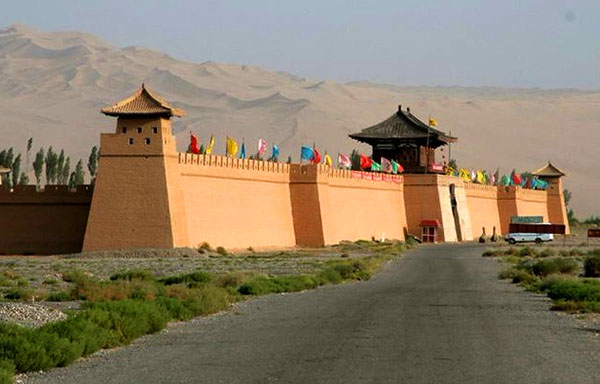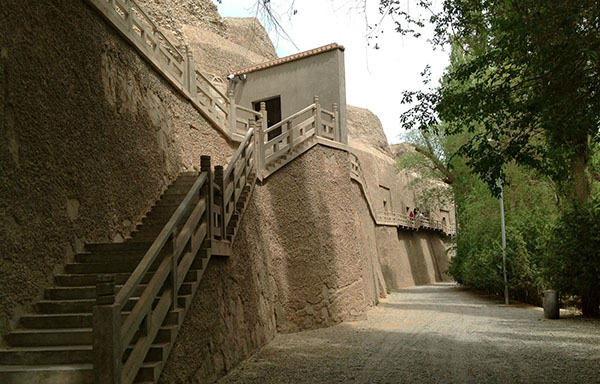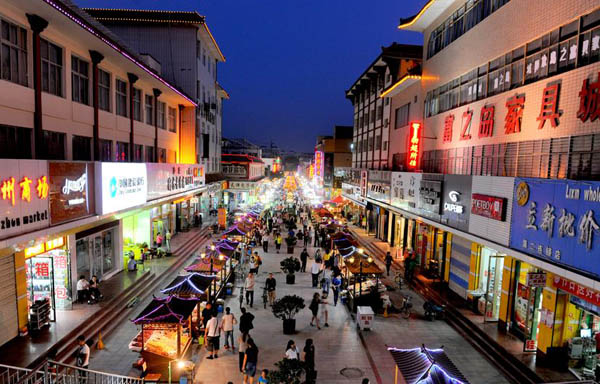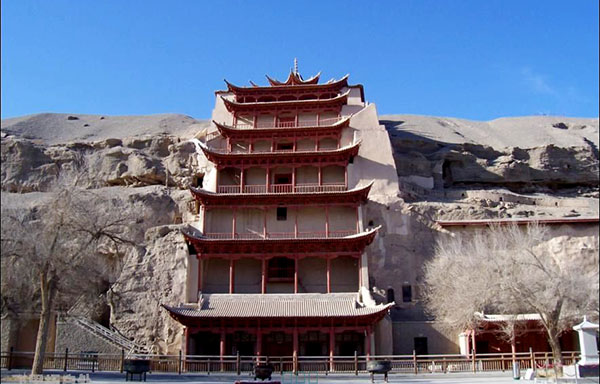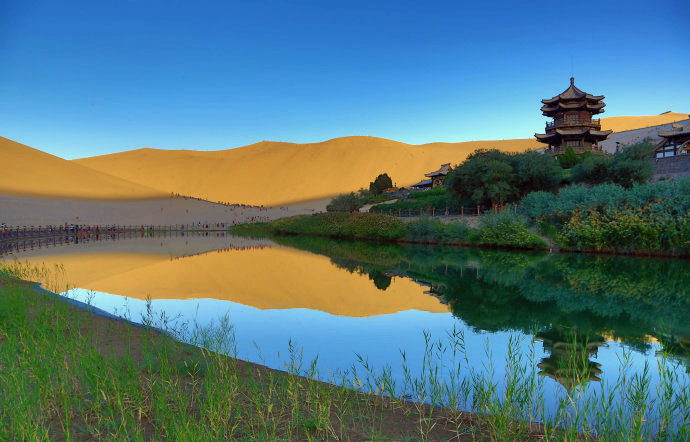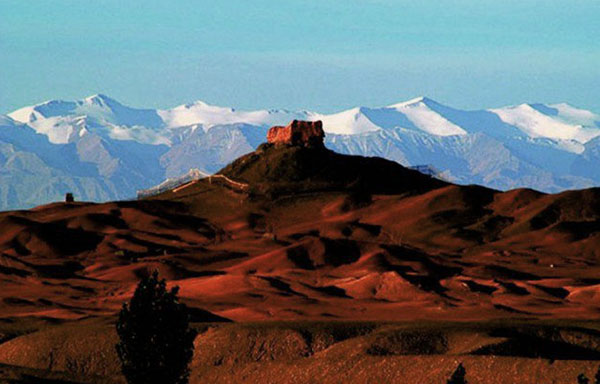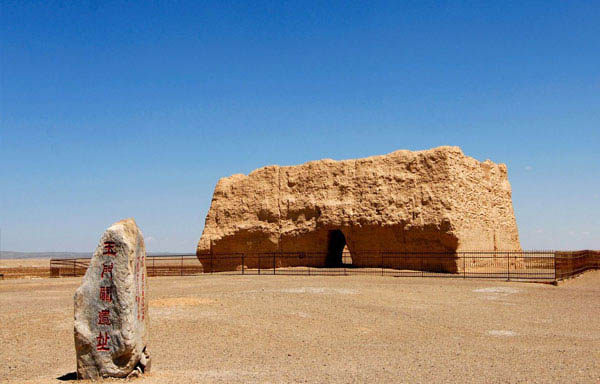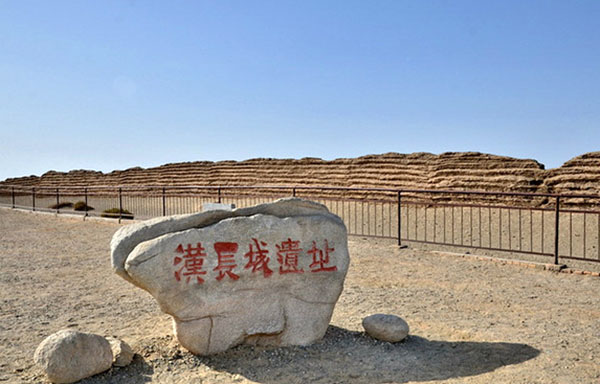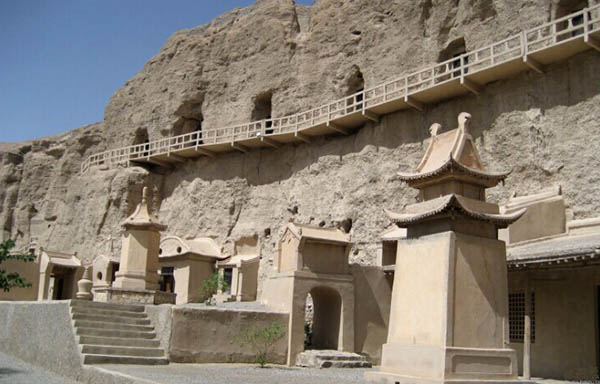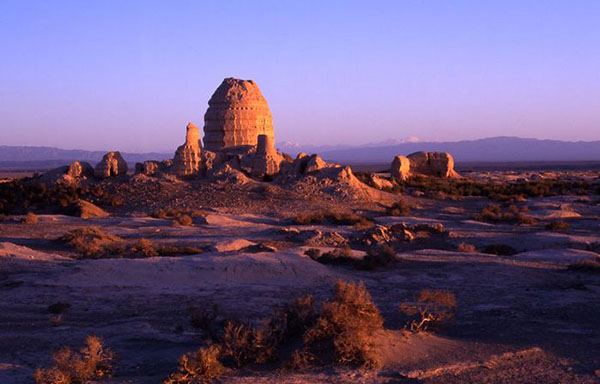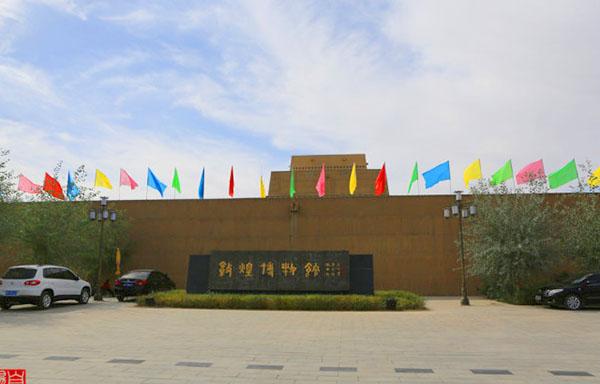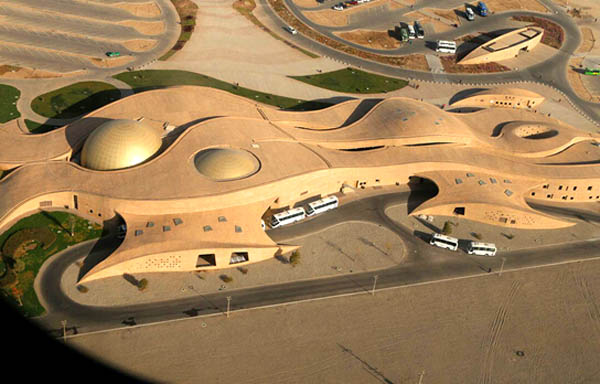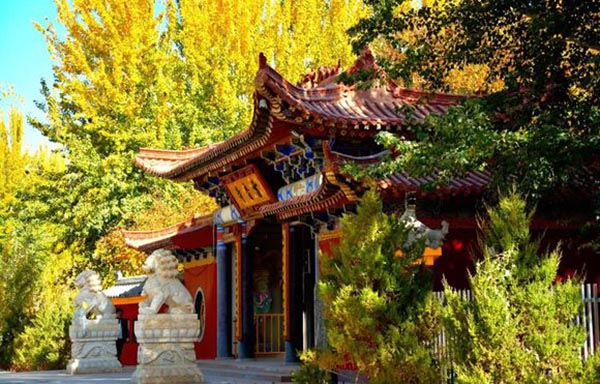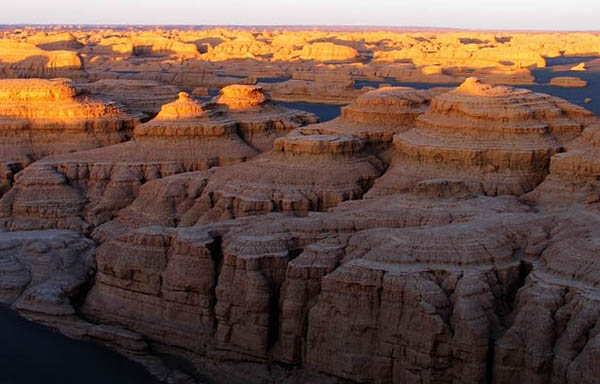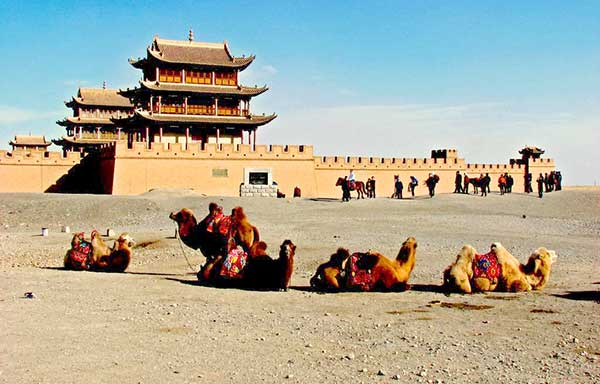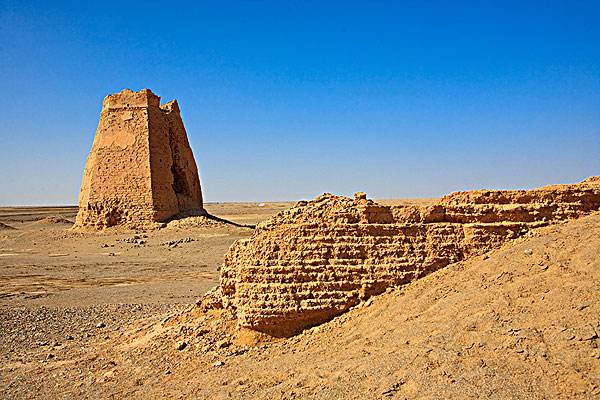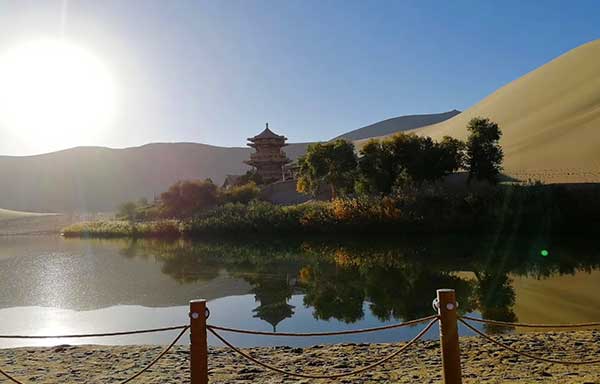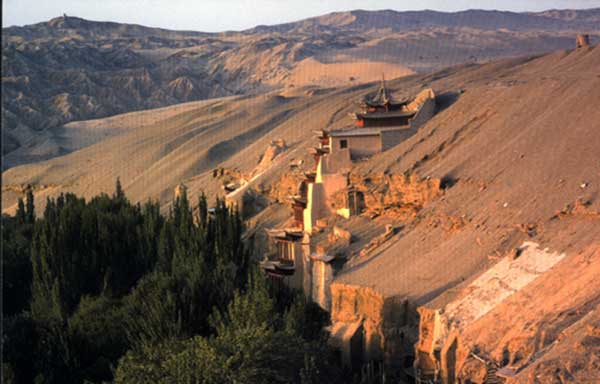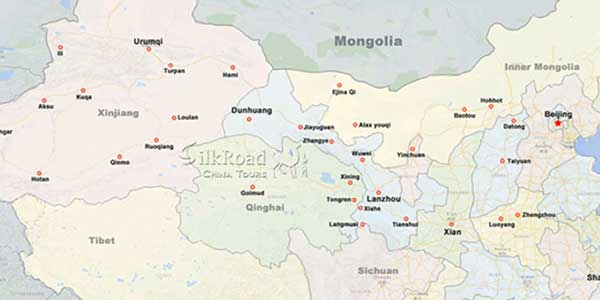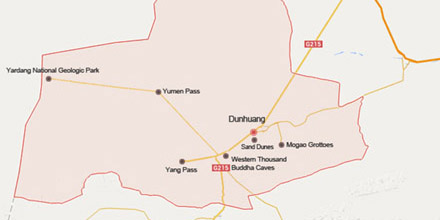 Located in Nanhu Village, about 70kilometerw southwest to Dunhuang City, Yangguan Pass is one of the two important western passes (the other one is Yumenguan Pass) of Great Wall in Western Han Dynasty (206BC -24AD). The Emperor Wu ordered to build it in the purpose of consolidating the frontier defense as well as developing the remote western region.
Located in Nanhu Village, about 70kilometerw southwest to Dunhuang City, Yangguan Pass is one of the two important western passes (the other one is Yumenguan Pass) of Great Wall in Western Han Dynasty (206BC -24AD). The Emperor Wu ordered to build it in the purpose of consolidating the frontier defense as well as developing the remote western region.
In Chinese, Yang means the south. Because it is lying to the south of Yumenguan Pass, people gave its name - Yangguan Pass. Together with Yumenguan Pass, it has also witnessed the prosperity of Silk Road in the past times. In Tang Dynasty (618 - 907), it welcomed the glorious return of Xuan Zang, a great monk who pilgrimaged to the west in search of Buddhist scriptures. Many Chinese get to know this important pass mainly from the poem Farewell to Yuaner to Take Office in Anxi, written by Wang Wei, a famous poet in Tang Dynasty. From the last two lines "Oh, my friend, I sincerely entreat you to have another cup of wine; you will see no more friends west out of the Yangguan Pass.", we can see the Yanguan Pass has always been the place of desolation and sadness since ancient times. In the Song (960 - 1279) and Ming (1368 - 1644) Dynasty, because of the decline of the Silk Road, the Pass was generally forgotten by people.
For years and years, the flowing dunes have eroded this Great Wall pass into a broken beacon tower, standing alone in the boundless desert. It measures 15.4 feet high and 8.7 yards wide. Around the relic, you cannot even see the dismantled walls, because they were all eroded by the wind and buried under earth. South to the pass, there is a "Curio Beach". It is a small valley where you can find lots of dynasties' tiles, coins, weapons, and decorations.
Today's Yangguan Pass is not only a historic place of recalling the remote past, but also a hometown of tasty grapes. Come here, appreciate the beauty of vicissitudes of the Great Wall, enjoy the natural view combined by oasis, desert and snow peaks, and taste the juicy fruits.
Gudongtan and its legend
Gudongtan is near the old Yangguan Pass. Many people who have visited the site luckily found coins, beads, jadeware, bronze swords and other little antiques. This is why people call it Gudongtan which means”antique sand”. Nobody can explain where these antiques come from, but one old legend may shed a light on the mystery.
According to the legend, the sand here buried precious dowry of a Chinese princess who was going to marry the prince of Khotan kingdom. The empress of Chinese empire prepared abundant dowry for her daughter. Dozens of camel carts were packed with Jewelries, gold and silver ware, silk, rouge, spices and cloth of four seasons. The long bridal procession escorted by soldiers left the capital one morning and headed for the Kingdom in Western region.
When the bridal procession reached Gudongtan, they were looted by a group of bandits who have laid in ambush behind the dunes. These bandits were in fact from a nearby little kingdom. Their king had made a proposal to the Chinese princess, but he was turned down by Chinese emperor for his little kingdom was too poor and too small. The king was enraged, he sent spies to China and was later informed that the bridal procession will pass Gudongtan. He then sent 300 confidential soldiers smeared face with ink and covered head with white scarf hiding behind the dunes and waiting for the signal.
It was a dim afternoon, as the bridal procession was walking slowly, soldiers complaining the long journey and harsh desert. Suddenly a loud horn broke the peace. Hundreds of bandits rushed out from the dunes. The bridal procession soon fell in to disorder from the sudden attack. However escorting soldiers soon recovered and fought back. After a bitter fighting, all the escorting soldiers were killed by bandits.
When the bandits collected the treasures rejoicingly and were about to take them back, they saw a yellow dust wall was moving quickly toward them. “Sandstorm, sandstorm!” people shouted. The sky soon turned into dark, strong wind with sand and dust blocked the sunlight. The sandstorm lasted for 3 days and nights. After the sky cleared up again, all the treasures disappeared as well as soldiers’ body and those bandits.
Gallery
Attractions in the area
Related Tours
General Information
Alias: Yang Pass
Loc: 70 km from Dunhuang
Entrance: 50 RMB
Open Time: 08:00 - 20:00
Relevant blogs
-
What is the connection between "dragons" and "snakes
In traditional Chinese culture, the snake has a dual identity of auspiciousness and danger. Ancient people believed that the snake not only possesses divine cha
-
Endangered Przewalski's Horses Spotted at Dunhuang Yume
<p>In early February, a group of special "visitors"—the Przewalski's horses—appeared at the Dunhuang Yumen Pass scenic area in Gansu Province, a U
-
The Fourth Dunhuang Cultural Tourism Supplier Conference
On the morning of February 18th, the Fourth Dunhuang Cultural Tourism Supplier Conference in Northwest China commenced at the Dunhuang International Convention
-
Hu-style Lamb Stew with Flatbread
The Historical Origins of Hu-style Lamb Stew with FlatbreadFor thousands of years, Dunhuang has been a crucial town on the ancient Silk Road. The people living
-
During the Spring Festival holiday, Dunhuang City achiev
The city's major tourist attractions were bustling with visitors who came to explore the ancient city, admire the desert landscapes, experience the Silk Road c
-
Dunhuang fresh grapes were exported to Iraq for the fir
On January 6th, 42 tons of red table grapes, under the supervision of Dunhuang Airport Customs under Lanzhou Customs, set off from Shekou Port for Iraq. This is






